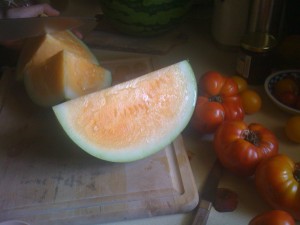I mentioned Doctor Gebisa Ejeta before when he won the world food prize for his work developing striga resistant sorghum breeds. This is a man who began life… well his own words can say it better than I can paraphrase:
I was born of illiterate parents with little means and raised in a small village without schools in west-central Ethiopia. An only child, I was nurtured with with lots of love, but on a diet less than adequate even for body maintenance, let alone for growth and intellectual development. … I was rescued by a godsend from the United State of America…
I took that quote from his testimony before the Senate Committee on Foreign relations this past spring. It was a moving call to renew the international investments in agricultural research, and the training of plant scientists around the world, something the United State and the international community as a whole have let slide for the past two decades. The whole testimony is an excellent read (h/t to mary for pointing it out on the biofortified forums). If you have a few minutes, please take the time to read the whole thing here [pdf]. If you don’t, you surely have the time to read this single paragraph: (more…)
